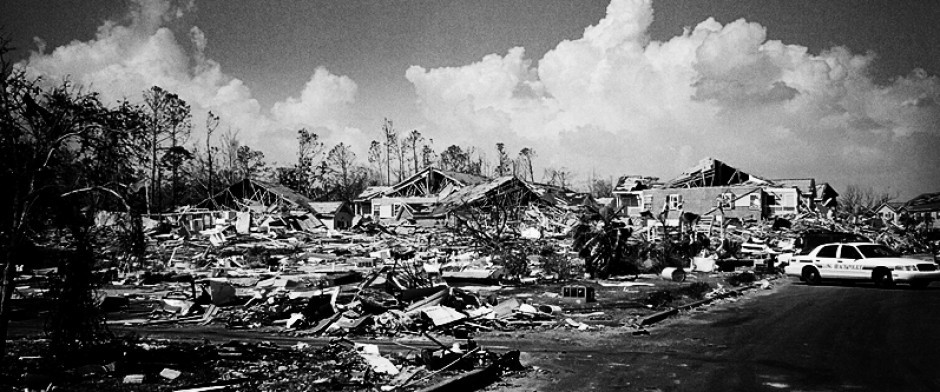The last week has witnessed some unprecedented changes across the Middle East. These events have moved the entire region closer to a major Sunni-Shia conflict. As such, it is important to review what has occurred and assess if this will lead to a major war. If so, it will have major strategic implications for the US so are you prepared?
First, it is important to understand the geopolitical layers at work. On the ground, various factions are battling each other in places like Yemen, Iraq, and Syria. These forces are mainly proxies for major regional powers such as Iran, Saudi Arabia, Iraq, and Israel. However, above these players, you have the strategic players that are battling for hegemonic control of not just the region, but the world and include the US, Russia, and China. Without understanding the various actors’ interests at each level, it is impossible to understand the end game. However, suffice to say that in every case, the state actor is seeking to reorganize the geopolitical order of the Middle East and this means more chaos, destabilization, and conflict. Because of this fact alone, you should plan and prepare for the breakout of what is an inevitable major war in the region that could spread globally.
To review the contemporary catalyst of this most recent escalation, we could point to the destabilizing effects the US invasion of Iraq had on the entire region. Historians will resoundingly point to George W. Bush’s decision to invade Iraq as one of the single greatest blunders in American history. The end result was that our adversary, Iran, was able to outmaneuver the players in the region to capitalize on the disorder the US created. This allowed Iran to effectively seize control of Iraq’s government and control hundreds of thousands of Shia militia fighters in Iraq. It further spread Iran’s influence into places like Yemen, Qatar, and Palestine, which terrified both the Saudis and Israelis. This resulted in Israel and Saudi Arabia forging an alliance that would otherwise be unthinkable.
To try and weaken Iran to stabilize their waning regional influence, a bloody plan was hatched by neo-cons in Washington with the support of Riyadh and Tel Aviv to take out Iran’s support network across the region. The disastrous plan was to covertly begin a proxy war in Syria to take down Assad, which was viewed as the key Iranian ally in the region. As you know, this led to the creation of ISIS and the deaths of hundreds of thousands across the region. In the end though, the monster known as ISIS wasn’t able to achieve its goals and got out of control so its creators had to destroy it. This brings us up to present day.
The defeat of ISIS in Syria meant Saudi Arabia’s policy to stop the ascension of Iranian power in the region met with complete failure. As a result, the Kingdom is in full panic mode, willing to make radical deals with countries like Israel, and is making reckless decisions respective of military actions. I have repeatedly warned that the proxy war the US covertly began in Syria would eventually lead to an all-out war once one side’s proxies were effectively defeated. This has come to pass as the conventional military arm of ISIS has been defeated in both Iraq and Syria by the combined Syrian, Russian, and Iranian forces on one side and the US and Kurdish forces on the other. Further, just as I previously predicted, the US has once again turned its back on the Kurds, which “were” the only true ally Washington had in the region. This will prove to be another policy disaster for the White House. Already, this allowed Iranian backed militias under the Iraqi flag to seize control of Kirkuk, which effectively ruined Washington’s influence and welcome in Kurdistan while increasing Iran’s power in the region. Russia also benefited as the Kurds announced closer relations to Moscow, which included signing over their remaining oil fields to Russia. Even the densest of analysts can see this as proof the Kurds now see the Russians as better the better ally.
So, in what looks almost like political death throws, the Saudis have been violently cracking down internally on any dissent of MBS’ policies and his ascension to the throne. Unsaid by most media outlets is the fact Saudi Arabia has also launched major crackdowns on Shia populations within the Kingdom that resemble a limited ethnic cleansing operation and have been forced to cut subsidies (welfare payments) to its citizens. This has ignited major internal unrest that could be exploited and lead to the collapse of the Saudi monarchy. Externally, the Saudis have been paying off everyone in Washington to back them in what will result in a war against Iran. Their public relations and lobbying efforts are in overdrive and they are burning through cash at an unsustainable rate. This brings us to November.
To recap the major events of the week, Saudi Arabia has unleashed a palace purge that has resulted in the deaths of at least two princes, perhaps over a hundred billion dollars in frozen (“seized”) assets, and the imprisonment of many other senior royal officials. This has eliminated any competition to Mohammad bin Salman (MBS) assuming the throne and his policies. In fact, it is quite likely King Abdullah will abdicate very soon and appoint MBS as his heir. Further, an Iranian manufactured missile was launched from Yemen targeting a major airport, which was intercepted over Saudi Arabia. Saudi Arabia blamed Iran for the attack calling it an act of war. If not enough, Lebanon was caught in the middle and now it appears Saudi Arabia and Hezbollah have declared war on each other. This occurred after Saudi Arabia forced the Lebanese Prime Minister Saad al-Hariri to resign and placed him under house arrest. Oh, and Israel began a major military exercise with Saudi Arabia amongst other nations rehearsing what amounts to a joint Saudi-Israeli air offensive against Iran.
Admittedly, this article takes academic liberties in summarizing a very complex situation. However, the clear trend line is towards more instability and war. Syria alone is nowhere near a done deal. In fact, it may get far worse if the US decides that it will stay and back Syrian rebels to overthrow Assad. This will unleash massive violence across the region, pull in world powers, and ultimately be a disastrous Pyrrhic victory for the US, which it will not recover from even if ultimately successful in overthrowing Assad. Let me be clear, the US needs to get out of Syria right now. We have no strategic interests in Syria worth the cost. If we stay longer, we will be seen as an invading force that will re-galvanize the region against the US in a new escalation of regional conflict. While the situation in Syria develops, Israel is closely monitoring Iranian nuclear and missile developments. Dangerously, President Trump and his Jewish son-in-law have emboldened the Israelis towards another war. This will almost certainly include more operations in Palestine, another doomed invasion of Lebanon, a new and even more disastrous offensive in Syria. If these fail to push back Iranian influence, there will ultimately be an Israeli-Saudi war launched against Iran. This war will be extremely costly for the region and world. It will take Middle Eastern oil offline, inflict billions in losses on global stock markets, and kill millions.
In conclusion, yes. Saudi Arabia and Iran will go to war once Saudi Arabia’s proxies are fully defeated by Iran. As I pointed out in my analysis of President Trump’s Middle East speech, the President effectively declared war against Shia Islam. Since then, events have rapidly materialized toward this reality. I would watch the region closely to see what direction the US takes in Syria and to see if rhetoric becomes action between Hezbollah and Saudi Arabia. If either side launches an attack, it will quickly escalate to full scale war between Shia and Sunni factions across the region with the US siding with the Sunnis (Saudi Arabia). When the dust settles, the US will have achieved a military victory so costly it will kill the petrodollar and financially destroy the US. This will ultimately destabilize the US at home and lead to the unwinding of our political system as we know it. Plan accordingly.
By Guiles Hendrik
November 10, 2017


